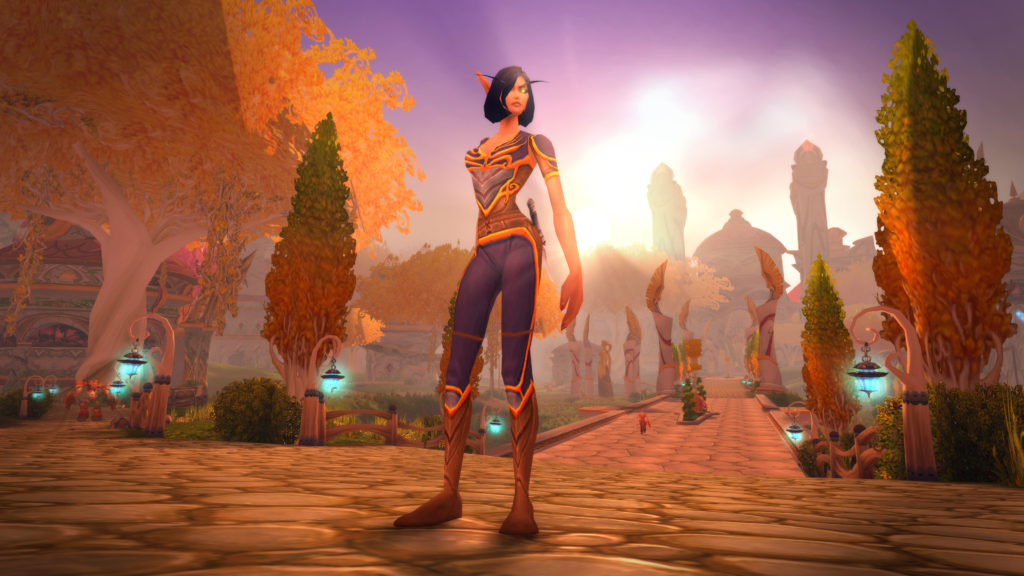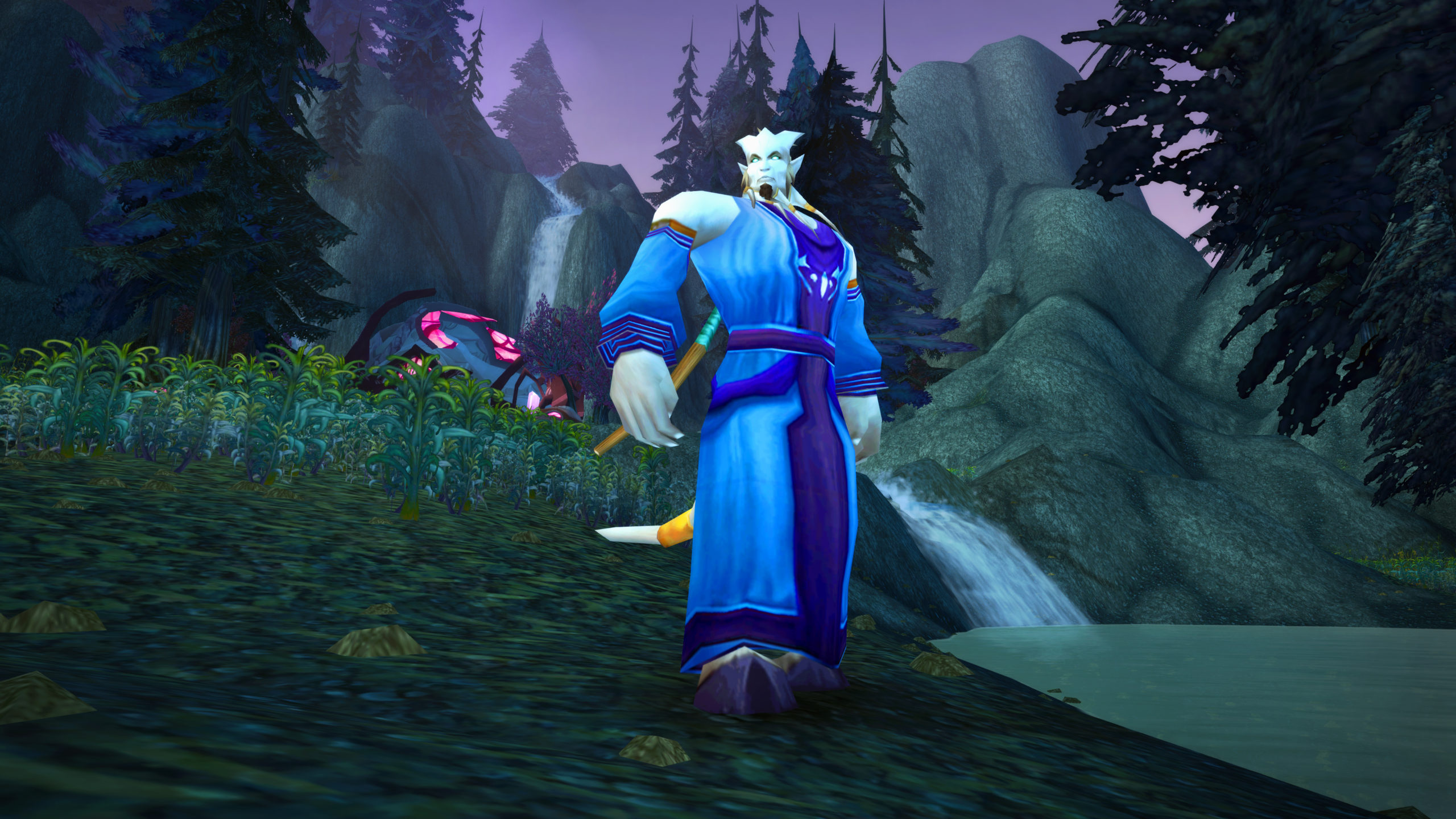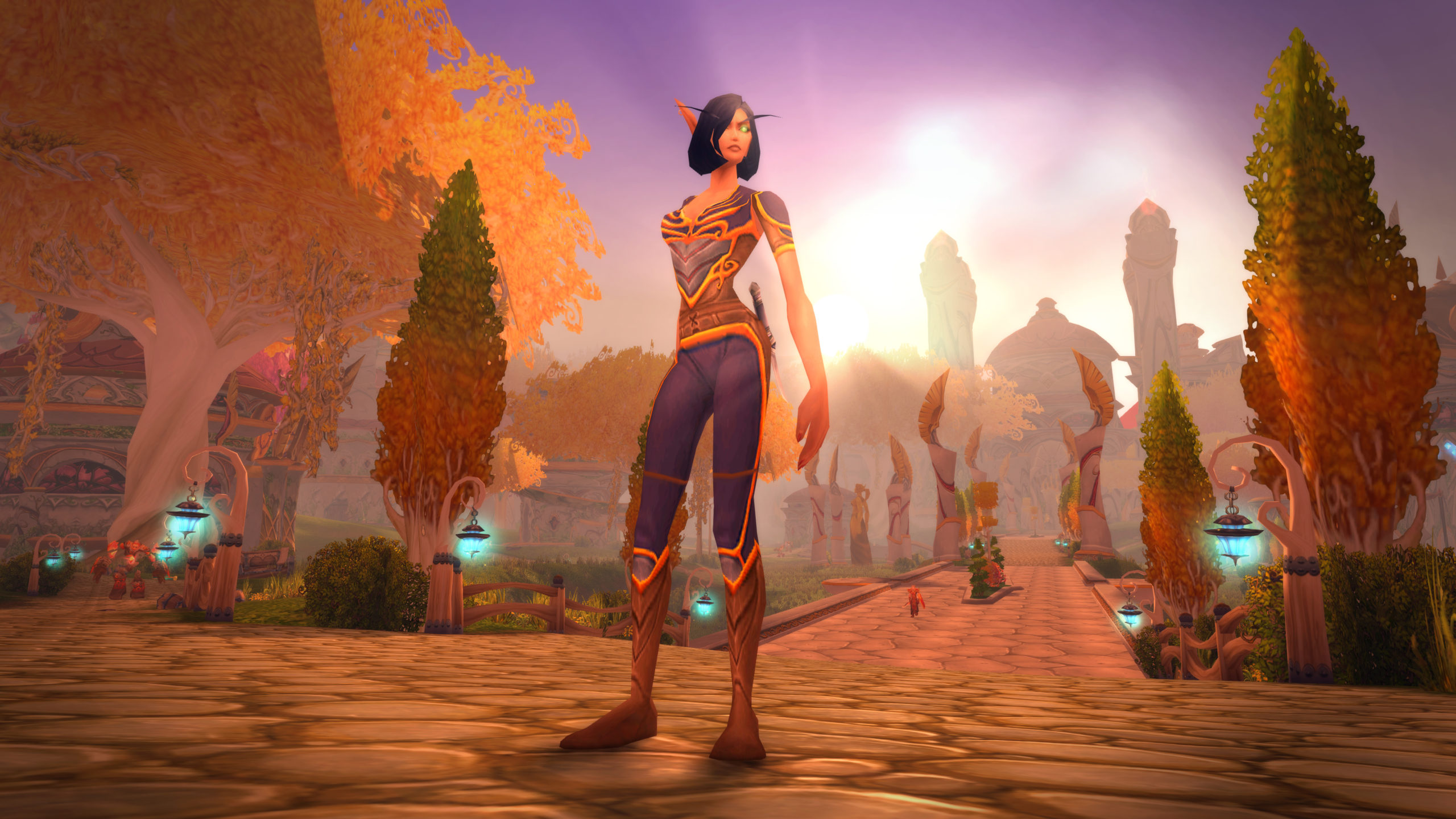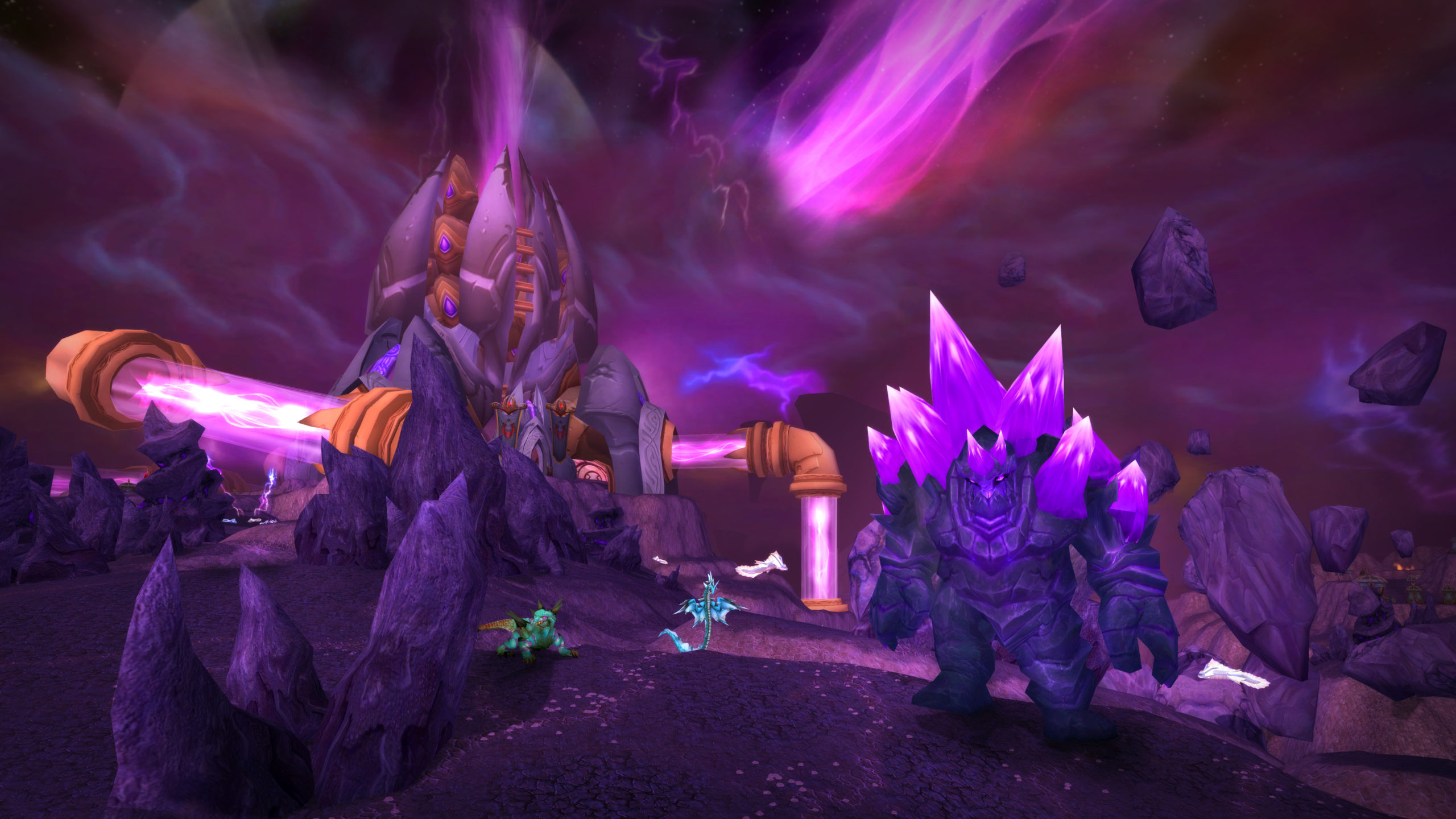
Provided by Blizzard Entertainment
It’s a Man’s World of Warcraft
Content warnings: This piece details incidents of racism and sexual harassment.
As a child, one of my best memories was watching my brothers take on the huge continents of Azeroth, the World of Warcraft. My world seemed small in comparison as I perched on a wooden stool in the basement, my face glowing from the blue light of my brothers’ computer screens as I spectated in awe. They showed me the battleground of Arathi Basin, with its sweeping view from the lumber mill on top of a great hill. The universe seemed so expansive, one with endless possibilities, as if I could take on a persona so anonymous of who I really was, a 5-year-old girl. But it turns out the world of Azeroth (and now, Outland) is pretty similar to the one I already live in.
My in-game friend, Angerbang, and I were in the player-versus-player battleground Alterac Valley when he started screaming the N-word at me. I was positioned at the top of a hill, tab-targeting frostbolts at the mangled blob of opposite faction players. There was a blizzard happening around us. Snowflakes were falling and my troll feet left strange dinosaur-like tracks. My music was drowned out by the beeping of my PvP addons and Angerbang shouting the N-word through my headphones. My heart raced and my stomach plummeted. I /afk’ed out of the battleground, ripped off my headset, and burst into tears.

Angerbang’s behavior came from pissing him off by saying I didn’t think male comedians were very funny. He said Louis CK’s victims were lying. Then he said he would assault any racist who said the N-word. Then he said the N-word in an attempt to “trigger” me. And then he said it again. And again. He blocked me on Discord and unfriended me through the game minutes later. I cried myself to sleep, feeling so naive as to believe I’d met a good person who could be a friend.
We live in the same city, and every time I went out, for months on end, I was afraid I would see his face and have no idea. Just days before, I had posted a photo in our Discord server of myself smiling as I displayed a puzzle that I had just finished of Ragnaros, an in-game boss. He could see me and know exactly who I was if we crossed paths in real life, but I wouldn’t have a clue. Video game friends are weird like that. They have a voice, a character name, sometimes even a real name, but their body is a ghost. Anonymity protects them from accountability.
This wasn’t my first encounter with racism or gender violence in World of Warcraft, and it certainly wouldn’t be my last. For many players, racism in-game is nonchalant and humorous. Sexual harassment is pervasive and inescapable. From bigoted comments about “Chinese gold farmers” to casual comments about rape and women being worse players, discrimination is an everyday experience in the game.
Activision Blizzard, recently bought by Microsoft, was sued by the state of California in July 2021 for a toxic environment full of gender discrimination and sexual harassment. The 2021 lawsuit was prompted in part when a woman took her own life after being harassed by her boss and co-workers. They circulated her private photos until she couldn’t endure it any longer. Accountability since the lawsuit has been scarce. This was nothing new, and most women and people of marginalized genders in gaming know this. In 2008 there was a team that qualified for a WoW BlizzCon official tournament, named “gonna rape Hafu,” an accomplished female opponent in the tournament.

I continued to play the game, assuring myself that because I would be (and was) the target demographic of this harassment, my in-game presence was an act of resistance. Encountering the men in WoW is like a final boss fight. In a stroke of sick irony, Angerbang’s new in-game name is Raidboss.
Women account for 36% of players of action & adventure games according to a Newzoo study in 2017 but only 23% of the World of Warcraft player base according to a 2017 Quantic Foundry study. These statistics don’t account for WoW Classic players, which are likely even lower based on experience. If I don’t speak in game-related chat, it’s assumed that I am a man. My gender anonymity enables men’s comfort. Once I speak in Discord, the atmosphere audibly changes. The men quiet down, they joke around less, they act more well-mannered.
“Sorry, didn’t know you were here. I’ll try to be more courteous around a lady.” I was in Arathi Basin, arcane blasting an opposite faction player into oblivion when the new guild member whispered me in-game. Men feel as if they fall under a new gaze when a woman is around to witness them. I’m not, nor do I want to be, one of the boys – I’m a lady deserving of different treatment and attention. They need to keep themselves under surveillance when someone who could be potentially harmed by their everyday behavior is present. But they don’t change how they act, they change how they act around me.

I believe when these players think no woman is around to hear them, they act violently. I joined a pickup raid group and a male player typed in chat, “ever be having sex with a girl way hotter than you and remember why you put a roofie in her drink?” I shriveled up in my chair but ultimately shrugged – this is what I signed up for.
Women in gaming are not permitted to have high expectations. We face a unique internal and external struggle. Who I am in my gamer life is so far from who I am in my embodied everyday. I feel like a spirit of myself, separating much of my leftist worldview for the sake of my own enjoyment, which often turns into extreme displeasure. I’m a woman before I’m a player in WoW. I’ve endured the rape jokes, the comments about how I get special treatment because I have breasts, the predatory behavior of men asking for my number and nude photos. But I’ve also received genuine connections with respectful people who aren’t looking to prey on me. Even though those people sometimes say r*t*rded. It really all comes down to an unfortunate gamble.
Our identities don’t disappear when we enter a video game. Gaming doesn’t provide an escape for oppressed people as it should. Instead, the violence compounds and makes us realize that the world we live in will never, ever provide us a reprieve from the oppression that exceeds our computer screens.
I drove through an in-game friend’s city and asked if he wanted to hang out. One of our mutual friends was supposed to attend as well, but he said he “didn’t want to intrude.” My hands shook the whole drive. My teeth chattered with stress. He took me to an arcade where I lost every game then bought me dinner. I took a photo of him and sent it to my friends: “if u dont hear from me, this is who murdered me.”
If you like what we do here at Uppercut, consider supporting us on Patreon. Supporters at the $5+ tiers get access to written content early.





